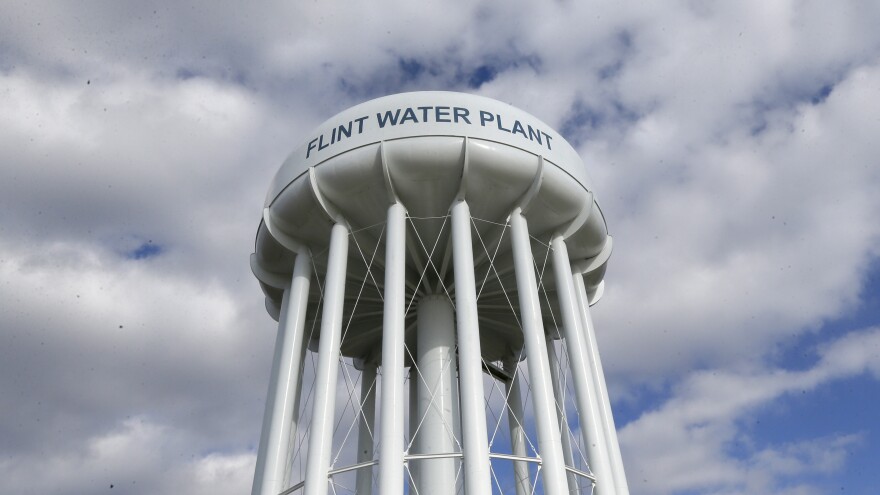President Obama is on his way to Flint, Mich., to get a firsthand look at federal efforts to help people in the city where dangerous levels of lead were discovered in the tap water last year.
Obama will meet with Michigan Gov. Rick Snyder as well as 8-year-old Mari Copeny, who's better known as "Little Miss Flint."
The third-grader wrote to the president in March saying, "I am one the children that is effected by this water and I've been doing my best to march in protest and to speak out for all the kids that live here in Flint."
Obama responded with a letter of his own, telling Mari, "I want to make sure people like you and your family are receiving the help you need and deserve."
Flint's problems with lead contamination began in 2014, when the cash-strapped city of 100,000 stopped buying water from Detroit and began tapping the Flint River instead. The corrosive river water was not properly treated and leached lead from the city's aging water pipes. Eventually, Flint switched back to Detroit water, but the contamination persisted. Lead poisoning has been shown to cause long-term learning disabilities in children.
Once the poisoning was discovered, there was no shortage of finger-pointing. Some politicians argued that similar lead contamination never would have been tolerated in a more affluent city. Flint is largely African-American and 4 in 10 residents live below the poverty line.
A commission appointed by Gov. Snyder — a Republican — put much of the blame on Michigan's Department of Environmental Quality. Two employees of the state agency now face criminal charges. Prosecutors also charged the manager of Flint's city utilities.
The EPA also came in for criticism. A regional EPA administrator, Susan Hedman, stepped down in February, after acknowledging her agency knew about the potential for lead problems as early as April of 2015.
So far this year, the federal government has distributed nearly 2 million gallons of bottled water, along with 55,000 water filters. Last month, state and federal officials declared that filtered tap water in Flint is now safe to drink.
The governor promised to drink Flint water for a month. Obama is not taking a similar stand. "I'm not aware of any photo ops that involve the president's consumption of water," said White House spokesman Josh Earnest.
Little Miss Flint's family is also skeptical. They're still relying on bottled water, and taking two-minute speed showers.
"It's absolutely exhausting," Mari's mother, LuLu Brezzell, told NPR's Here and Now. "You have to remind your kids not to drink the water, not to turn on the faucet, not to wash your hands for too long because they end up with rashes that are similar to chemical burns."
Brezzell said she hopes Obama declares a federal disaster in Flint, freeing up money to replace the city's outdated plumbing. But White House spokesman Earnest cautioned no big announcements are expected during the president's trip.
Earnest notes the federal government has already expanded access to health care and Head Start in the city. Medicaid is now available to all residents under 21 and the government has made grants to local health care providers as well.
Last week, a U.S. Senate committee passed a bill that includes up to $100 million in grants and loans to help Flint replace old water lines that contain lead. It's part of a broader, $9 billion package designed to improve harbors, ports and other public works.
Obama told college journalists at the White House that while Flint's problems are extreme, they are not unique. "We have underinvested in some of our basic infrastructure that we rely on for our public health," he said. "Hopefully [this visit] will give me a chance to speak to the nation as a whole about how we need to ensure that our air is clean, our water is clean and that our kids are safe."
Copyright 2021 NPR. To see more, visit https://www.npr.org.



